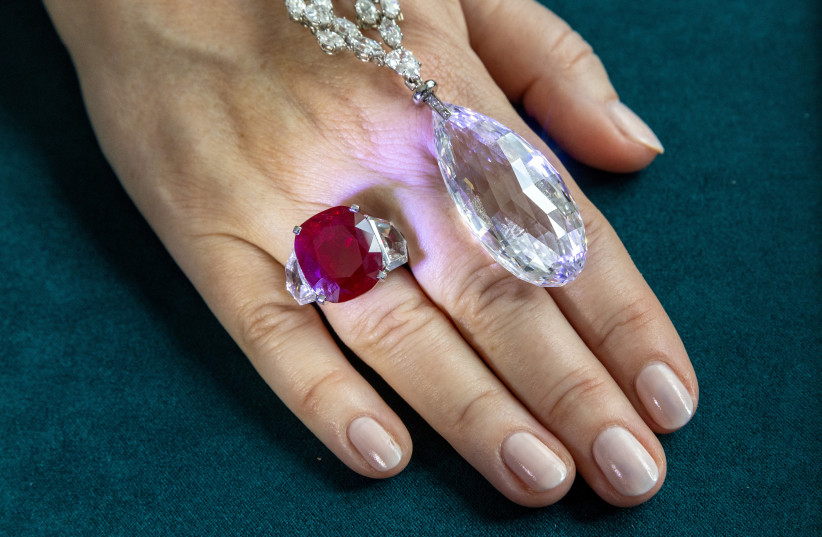Christie’s, the prestigious British auction house, has offered to donate large sums of money to Jewish and Israeli organizations that focus on the Holocaust, after drawing criticism because of selling jewelry with ties to a Nazi.
Last Monday, Christie’s sold jewelry that belonged to the late Heidi Horten, an Austrian art collector whose husband, Helmut Horten, was a Nazi Party member and who made his fortune by buying department stores from Jews at a very low price during the Holocaust. The items fetched a total of $202 million, making the auction the largest jewelry sale in history.
The Jerusalem Post has learned that a number of Jewish organizations around the world as well as in Israel received an offer for a donation from Christie’s commission of this sale, as part of their recognition of the fact that Horen’s funds were based on the fact that he benefited from the Holocaust.
Israeli orgs. including Yad Vashem reject Christie's donation
Among the organizations are Yad Vashem, Israel's official memorial to the victims of the Holocaust and the Claims Conference, an organization that represents Jews in negotiating for compensation and restitution for victims of Nazi persecution and their heirs. The Post has reached out to the Claims Conference and has not yet received a response.
A senior source at Yad Vashem told the Post on Sunday that they were approached by Christie’s about three weeks ago regarding a possible donation on their behalf. Yad Vashem has officially commented on approving this offer by Christie’s, stating that they have declined to accept any donation because of the source of the funds.

Another Jewish organization was offered a donation of $100,000 but has also declined to accept the funds for the exact same reason, according to a source close to the organization.
Christie’s site has said that it has committed to donate “a significant portion of its commission [from this sale] to organizations that contribute to vitally important Holocaust research and education. It will be up to these organizations, if they so wish, to communicate about these donations,” the Christie’s site said, with a hint of understanding that many organizations wouldn’t agree to receive donations from this sale.
Associations representing Jews and Holocaust survivors criticized the auction last week because of the origin of the wealth that paid for the jewelry. David Schaecter, president of Holocaust Survivors’ Foundation USA, said the auction continues “a disgraceful pattern of whitewashing Holocaust profiteers,” according to the Times.
“Christie’s must suspend this sale until full research [into the] link to Nazi era acquisitions [is] completed,” Rabbi Abraham Cooper, the associate dean of the Simon Wiesenthal Center, said in a statement earlier this month urging Christie’s to halt the auction. “Don’t reward those whose families may have gained riches from desperate Jews targeted and threatened by the Nazis.”
Christie’s also drew fire for not initially including any mention of the Jewish businesses in its marketing materials for the auction. Its website now includes a brief note stating that the provenance of Horten’s wealth is “a matter of public record. The business practices of Mr. Horten during the Nazi era, when he purchased Jewish businesses sold under duress, are well documented.”
In April, the Christie’s Grant for Nazi-era Provenance Research was announced. "In addition to the year-long global program marking the 25th anniversary of the Washington Principles, Christie’s is delighted to announce the 2023 Christie’s Grant for Nazi-Era Provenance Research," their website stated.
The Grant is to be offered to three recipients, £5,000 each, which "will fund forward-thinking academic, postgraduate research into subjects related to Nazi-era provenance research."
The Post requested a comment from Christie’s on the matter and hasn’t yet received a response.
JTA contributed to this report.
